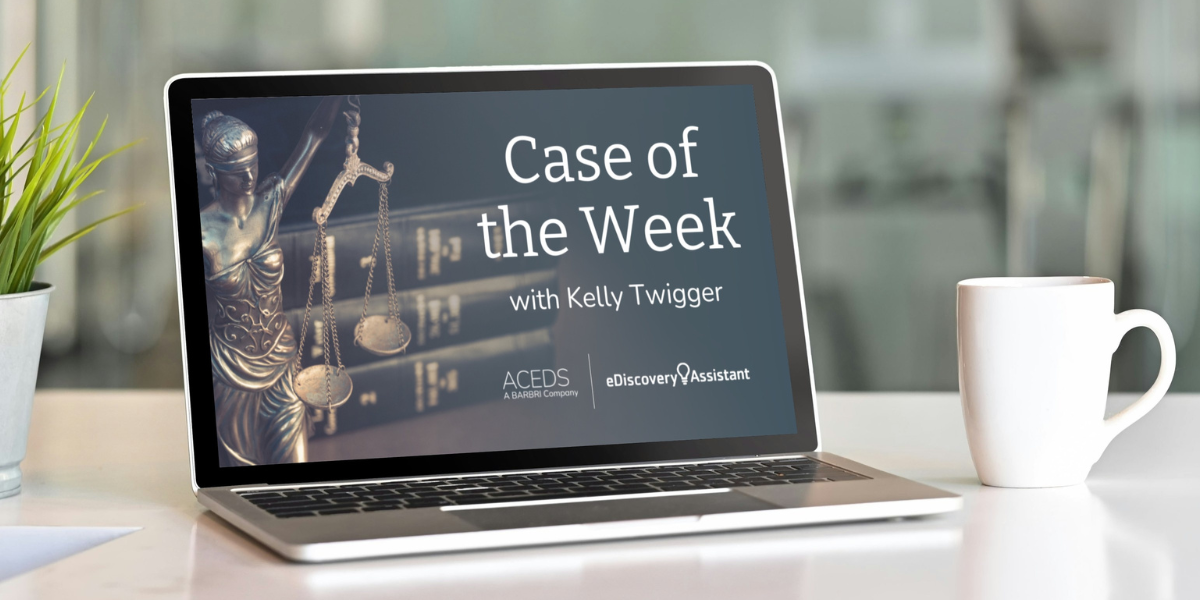In Moore v. Garnand, Inc. (July 3, 2024), the importance of metadata in ediscovery takes center stage. This case highlights why metadata isn’t just a technical detail but a vital piece of evidence in litigation. Metadata, like timestamps or file details, can reconstruct a sequence of events and provide the hard facts that often get lost in witness testimony.
Why Metadata Matters in Litigation
In the underlying § 1983 action the plaintiffs alleged that their constitutional rights were violated when search warrants were executed at their home and business as part of an arson investigation. The plaintiffs argued that metadata accompanying hundreds of photographs taken during the searches would help them piece together the timeline of the events that Tucson police officers could no longer accurately recall.
When the defendants produced photographs of the searches, they failed to include the metadata. The plaintiffs argued that this omission was critical because the metadata would show the exact time and sequence of events that occurred during the police investigation, which the witness’ recollections couldn’t fully capture. The plaintiffs moved to compel the metadata’s production, and the court agreed.
This case serves as a reminder that ediscovery is not just about gathering documents—it’s about telling a story, and metadata plays a crucial role in that narrative.
Using Metadata to Build a Story
Metadata can provide essential details such as when a photograph was taken, where a file was created, or who authored a document. These details enable litigators to reconstruct the facts of a case and create a solid timeline. Without metadata, you’re left with incomplete pieces of the puzzle.
In Moore v. Garnand, the plaintiffs needed metadata to corroborate their story about how the investigation unfolded. While the defendants argued that placards in the photos indicated the timing of events, the court disagreed, stating that placards were not a substitute for the actual metadata. The court ordered the defendants to produce the metadata, reinforcing the critical role it plays in understanding the full picture of events.
Ask for Metadata Early
One of the most important takeaways from this case is that if metadata is crucial to your case, you need to ask for it upfront. The plaintiffs in Moore v. Garnand eventually got the metadata they needed, but imagine how much stronger their case could have been had they received it as part of the initial production.
Make sure metadata is explicitly included in your ESI protocol and requests for production. Don’t assume it will be provided—be clear about what you want and why it matters. Be specific in listing the fields of metadata you need for each type of electronically stored information (ESI) in your case.
Rule 37: Know Your Sanctions
The plaintiffs in Moore v. Garnand also sought sanctions for the failure to produce metadata, but the court didn’t impose any. However, this case is a reminder that failing to produce ESI—including metadata—can lead to sanctions under Rule 37 of the Federal Rules of Civil Procedure.
Rule 37(c) provides for sanctions when a party fails to include relevant ESI in its initial disclosures. Courts have become increasingly focused on parties’ obligations to produce metadata, and litigators should be aware of the risks of non-compliance. While the court in this case decided that the production of metadata was sufficient to cure the error, other courts may not be as lenient.
Conclusion: Metadata is a Litigator’s Best Friend
The key lesson here is that metadata is essential for telling a complete and fact-based story in litigation. It’s the digital breadcrumbs that help you establish the who, what, when, and where of your case. Without it, you risk leaving important details to interpretation or faulty memory.
Litigators must be proactive in requesting metadata, making sure it’s a priority in ESI protocols and production requests. Failing to do so could weaken your ability to build a factually solid case. Metadata is a powerful tool that can dramatically strengthen your argument and provide the hard facts needed to prevail in litigation. Use it wisely, and ask for it early.


